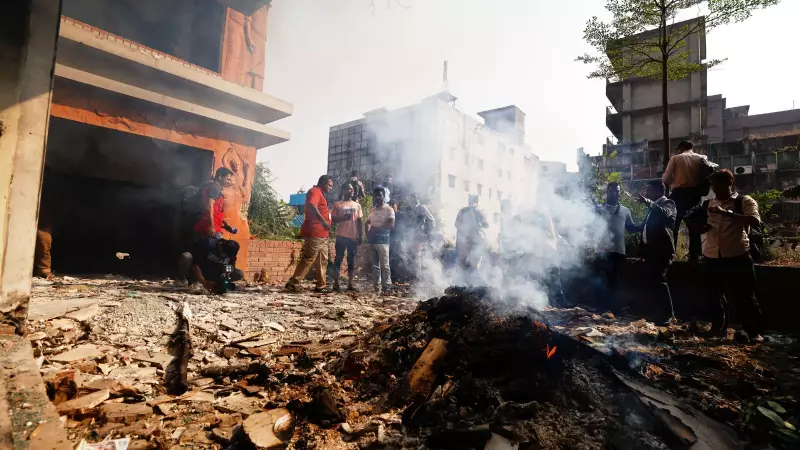
Bangladesh has been gripped by a wave of coordinated violence as multiple explosions and arson attacks rocked the country just hours before a crucial court verdict involving former Prime Minister Khaleda Zia. The incidents have raised serious security concerns and intensified political tensions across the nation.
Nationwide Security Alert
Authorities reported that at least five crude bomb explosions occurred in quick succession across Dhaka's Malibagh area on Wednesday evening. The timing was particularly significant as it came just before a scheduled court verdict in a case against Khaleda Zia, the former prime minister and main opposition leader.
Simultaneously, arson attacks targeted several vehicles in different parts of the capital. Witnesses described scenes of panic as explosions echoed through busy neighborhoods, sending pedestrians and shop owners scrambling for safety. Police and bomb disposal units rushed to the affected areas to secure the locations and investigate the incidents.
Political Context and Tensions
The violence occurs against the backdrop of heightened political polarization between supporters of current Prime Minister Sheikh Hasina and the opposition Bangladesh Nationalist Party (BNP) led by Khaleda Zia. The court case in question involves Zia's alleged involvement in graft during her tenure as prime minister from 2001 to 2006.
Security forces had anticipated possible unrest surrounding the verdict and had taken precautionary measures. Thousands of additional police and paramilitary personnel were deployed around court complexes, government buildings, and key intersections across major cities. The government had also issued warnings about potential violence orchestrated by opposition elements.
Government Response and Investigation
Law enforcement agencies have launched a comprehensive investigation into the coordinated attacks. Preliminary findings suggest the involvement of organized groups aiming to create chaos and disrupt public order. Police have collected evidence from explosion sites and are reviewing CCTV footage from affected areas.
Home Minister Asaduzzaman Khan stated that security would remain on highest alert until the political situation stabilizes. He emphasized the government's determination to prevent any further violence and ensure the safety of citizens. The Rapid Action Battalion (RAB) and other specialized units have been directed to maintain vigilance nationwide.
Meanwhile, the BNP has denied any involvement in the incidents and instead accused government supporters of staging the attacks to justify a crackdown on opposition activities. Party officials claimed that their supporters were exercising restraint despite what they described as politically motivated legal proceedings.
Impact on Daily Life and Economy
The explosions and subsequent security measures have significantly disrupted normal life in several urban centers. Businesses closed early in many areas as news of the violence spread, while public transportation faced delays due to increased security checks. Educational institutions in sensitive areas have announced temporary closures as a precautionary measure.
The business community has expressed concern about the economic impact of recurring political violence. Chambers of commerce and industry representatives have appealed to all political parties to maintain peace and stability for economic growth. Previous episodes of political unrest have cost the country billions in lost production and damaged infrastructure.
As Bangladesh navigates this latest crisis, international observers are closely monitoring the situation. The United Nations and several foreign embassies have issued security advisories for their staff and citizens in Bangladesh. The coming days will be crucial in determining whether the country can avoid further escalation of violence and find a peaceful resolution to its political differences.






